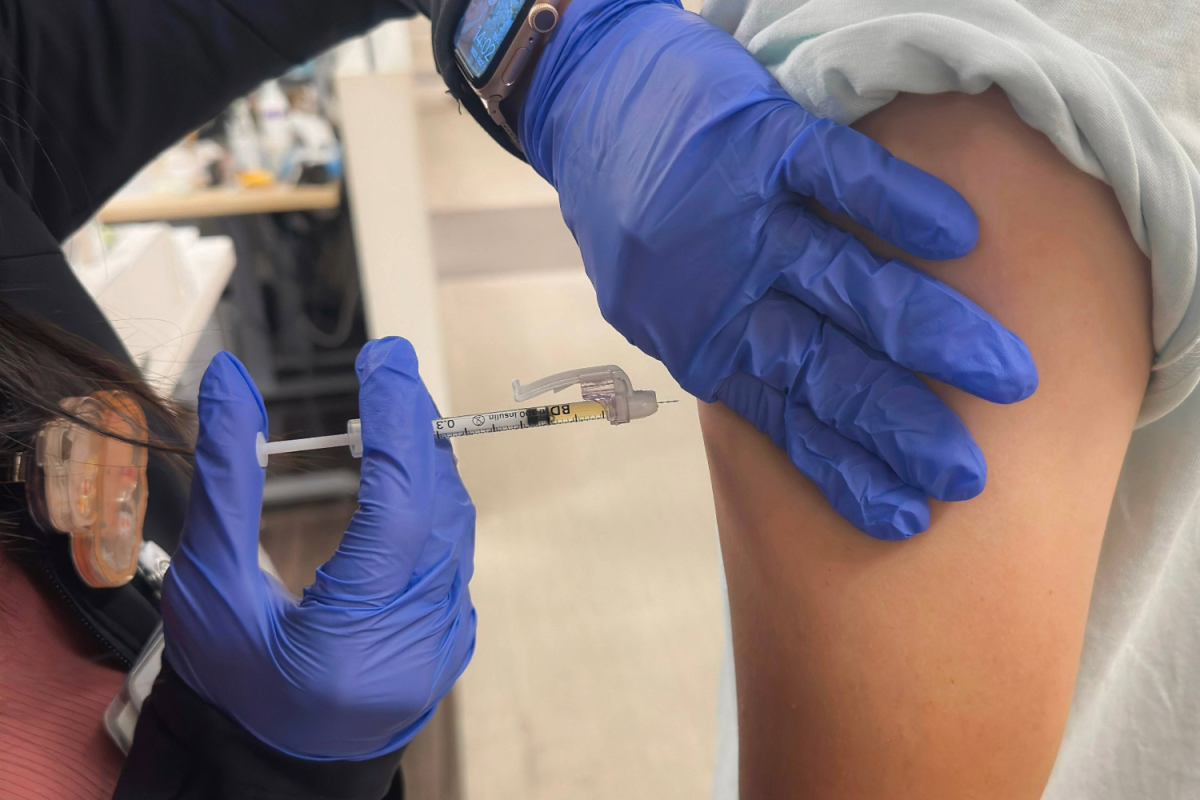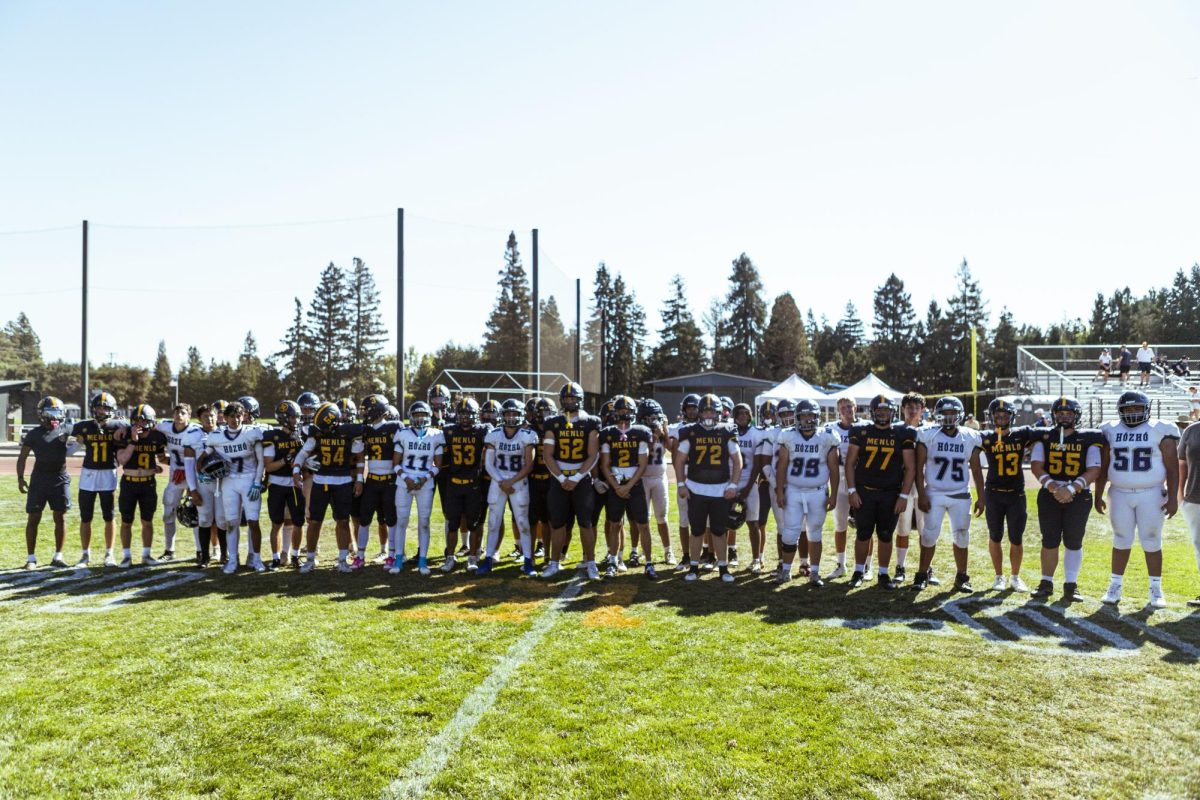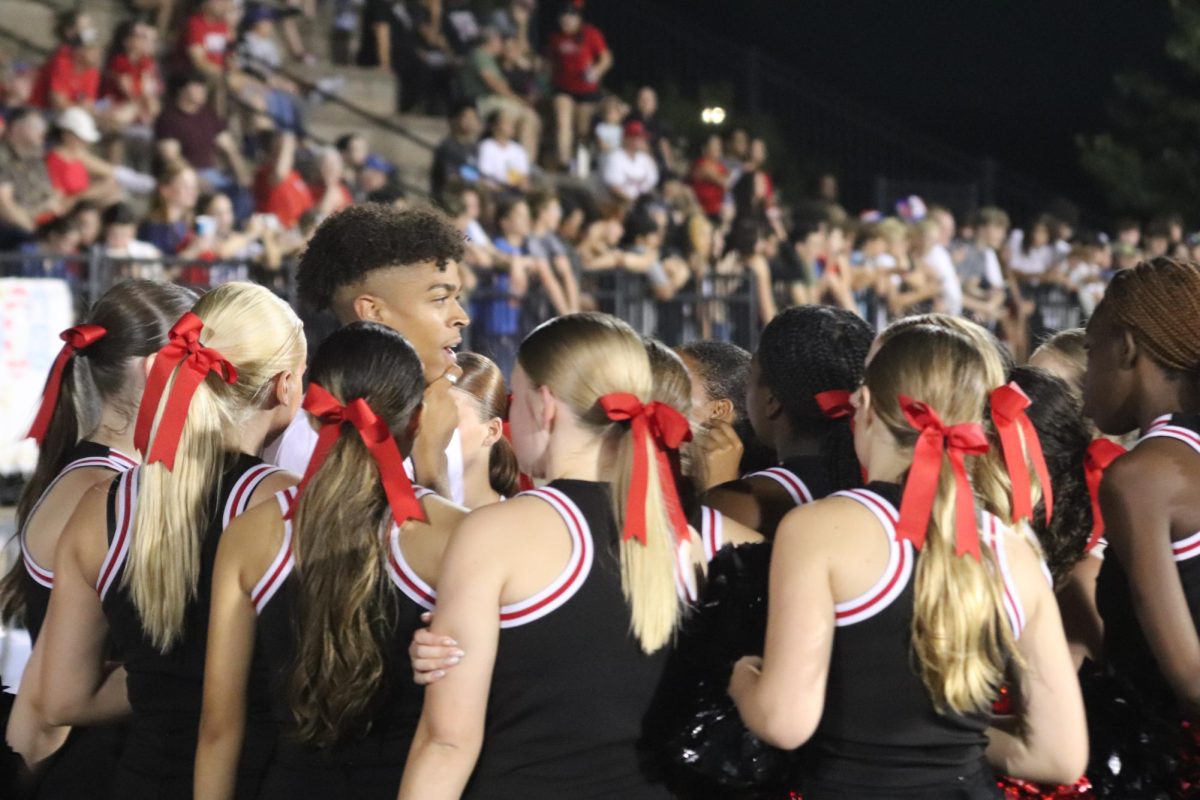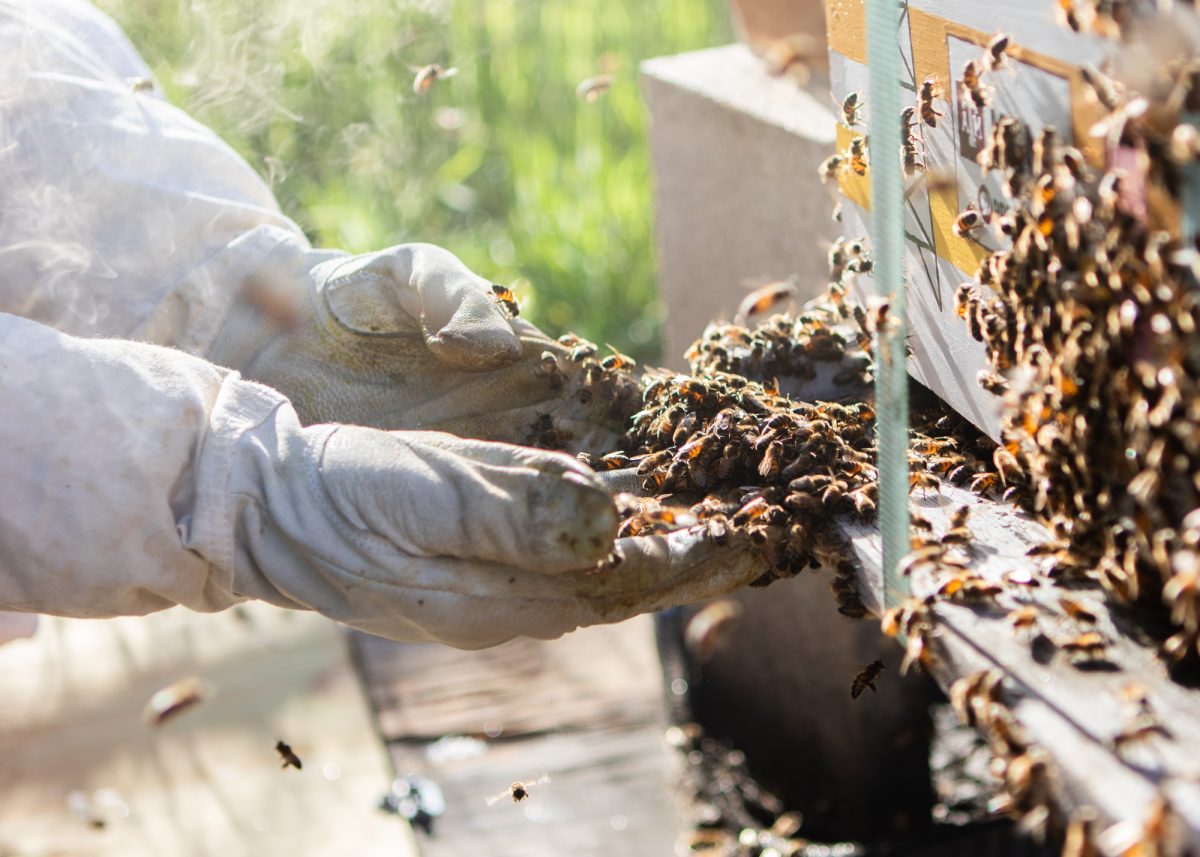The speakers turn on. Static clicks. And a voice reads “Your starting lineup for the Texas A&M Aggies is …”
Spectators hear that sentence echo through the speakers at every home tennis match. If you’re an avid tennis fan, you’ve heard his voice before. It is the voice of Matt Dittman, KAMU Radio program director. With years of radio knowledge under his belt, he has developed a vast understanding of the field. At his job, he is surrounded by a familiar frequency of sounds coming through the radio.
At his home away from home, the frequency is different. Electronic beats turn into constant buzzing created by thousands of tiny creatures.
Dittman steps outside his car, and this time the buzz is not from the radio. Here he is greeted by black-and-yellow wonders.
Beyond the stadium and intensity of game days, Dittman said his favorite sound is the gentle hum of bees. After he steps away from a day of roaring crowds and the pressures of being inside a press box or radio station, Matt and his wife find themselves in their golden-winged haven.
“I had decided Matt was going to join me or he wasn’t,” Matt’s wife, Shelby Dittman, said. “Either way, I was going to have bees.”
Shelby graduated from A&M in 2018 with a degree in agricultural communications and journalism. While in undergrad, she took Biology of Beekeeping, and she said the more she learned, the more fascinated she got. One of her previous co-workers offered her land to keep her bees and ever since, she got herself and Matt into a hive of adventures.
“The number one goal was not to get honey,” Matt said.” We thought having bees would be cool and wanted to raise bees as a hobby.”
The Dittmans picked up their first package of bees on a rainy April day in 2022. They took them to their apiary, and from there separated the bees into two large and deep wooden hives — one Whataburger-themed, the other A&M.

After spending weeks getting to know the bees, Shelby discovered comfort in their soft buzzing. She said bees drum their wings in the key of C; she believes that spending so much time near the bees’ calming buzz could have a healing effect.
“We’re out there and that nice hum is calming,” Shelby said. “ I’ve heard it and I believe it and it definitely affected us the same way.”
These colonies gently swarm around the couple as they maintain their homes every other week. They are no strangers to getting stung by them, but Matt said surprisingly the number of stings they have received is low.
Matt said bees are not necessarily aggressive, and as long as nobody gets in the hive’s way, they don’t attack people. Worker bees can only sting once, so they are not going to attack unless something is tearing apart the hive.
The Dittmans handle these bees by using a smoker on their managed hides. The smoke calms the bees by covering their alarm pheromones, which makes them less “spicy,” as Shelby puts it.
“They calm down, and they act as a liquid, and we’re able to open palms and gently scoop them up,” Shelby said. “It’s very important that you move slowly and breathe slowly and try to crush as little bees as possible.”

The couple learned much of what they know about beekeeping from the Brazos Valley Beekeepers Club. There, they attend an annual “bee school,” which Matt said teaches classes about the upkeep of bees. They also took a honeybee biology course in Brenham through the Central Texas Beekeepers Association.
While Matt mentioned he still has much to learn, his expertise came in handy on an episode of Texas A&M Today. While he was not part of the show, he told the showrunners how to prepare for their episode, which featured a segment on A&M’s honeybee lab — the same lab Shelby took while she was enrolled in Biology of Beekeeping.
The Dittmans handle their bees differently depending on the season and weather conditions. According to Shelby, bees prefer blue, sunny days, as they use the sun’s UV rays to navigate. On cloudy days, the bees can’t go out and fly, so they tend to be “spicier.”
“Most people would not believe that being buzzed by thousands of bees is relaxing and calm, but when you have the right gear, practice and knowledge it kind of is,” Matt said.
Matt also mentioned how it is important to remember that a beekeeper can put in effort and be knowledgeable, but sometimes a hive might not work. It can be disappointing, but he said it’s important to not give up on the bees.
Matt recalled one time he made a mistake, in which a $45 queen bee got out under his watch, and the Dittmans had to force-release the queen. They grabbed a Mason jar and spotted the insect flying around and ended up catching her and forcing her back into the hive.

The Dittmans do not shy away from teaching people about the importance of having bees. They said that if they can’t take people to see the bees, they will still talk about them and educate others.
“I knew almost nothing about bees until I started talking to Matt,” Jay Socol, who works with Matt at KAMU, said. “Bees are very intelligent creatures, a fully functioning society, and they have personalities and intentionalities and that’s crazy.”
Matt said given the choice between listening to rowdy crowds and the buzzing sounds of critters, he’d settle down and cool off after a long day by just being around and listening to his bees.
“I started in broadcasting and I think it is hilarious all these years later that I competed in events for farm radio and entomology, and these days I’m doing radio and keeping bees,” Matt said. “I don’t think of all my athletic stuff as work. I like being a part of it and it’s the best hobby, and then in my downtime, I am also enjoying another hobby.”
This story was originally published on The Battalion on May 1, 2024.








































